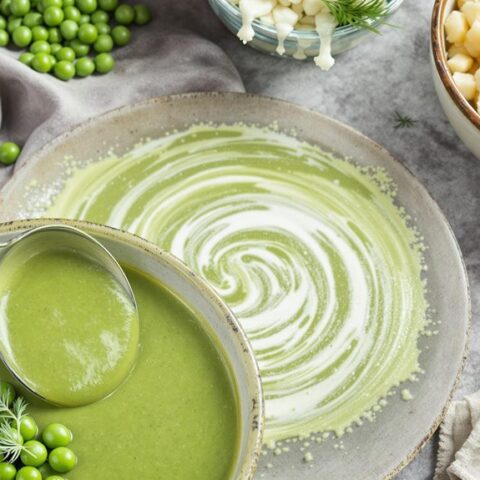
Miso contains moderate carbohydrate content, with approximately 4 grams per tablespoon serving. While not strictly low-carb, this fermented soybean paste offers significant nutritional benefits through its probiotics, proteins, and antioxidants. Different varieties of miso, particularly darker types, may contain slightly fewer carbohydrates. For those following a low-carb diet, careful portion control and measurement allow for the inclusion of miso's unique umami flavor and health benefits. Understanding miso's alternatives and proper serving sizes reveals its potential in a carb-conscious lifestyle.
Key Takeaways
- Miso contains 4 grams of carbohydrates per tablespoon, making it moderately carb-dense for strict low-carb diets.
- Dark miso varieties have slightly lower net carbs than light miso due to their pure soybean composition.
- A standard serving of miso soup contains 5.45 grams of carbohydrates, requiring portion control for carb-restricted diets.
- Alternative low-carb umami options include soy sauce (0.5g carbs) and coconut aminos (1.0g carbs) per tablespoon.
- Miso can fit into low-carb diets with careful portion control and by using half-tablespoon servings.
Understanding Miso's Carbohydrate Profile
While miso adds a rich umami flavor to dishes, its carbohydrate content requires careful consideration for those following low-carb eating plans. This traditional Japanese fermented paste contains approximately 4 grams of carbohydrates per tablespoon, with variations among different types of miso affecting the total carb count.
The carbohydrate profile of miso reveals significant net carbs, containing about 25.37 grams per 100 grams, making it challenging for those following strict keto or low-carb diets.
Light varieties typically have higher sugar content compared to darker misos, necessitating careful portion control for health benefits without exceeding carbohydrate limits.
Even a standard serving of miso soup contains 5.45 grams of carbohydrates, illustrating the importance of mindful consumption when incorporating this fermented ingredient into a carb-conscious diet.
Types of Miso and Their Carb Content
The diverse world of miso encompasses several varieties, each with distinct carbohydrate profiles that merit careful consideration for those monitoring their carb intake.
While all types of miso paste contain approximately 4 grams of carbohydrates per tablespoon, darker misos, particularly hatcho miso, offer slightly lower carbohydrate content compared to their lighter counterparts.
For those following a keto diet or other low-carb eating plans, understanding these variations becomes essential in meal planning.
- Red miso and white miso both contain around 4 grams of carbs per tablespoon, making portion control important.
- Darker varieties of fermented miso tend to have lower net carbs due to their pure soybean composition.
- Standard miso contains roughly 25.37 grams of total carbohydrates per 100 grams, requiring careful measurement for carb-conscious individuals.
Health Benefits Beyond the Carb Count
Beyond its carbohydrate profile, miso stands out as a nutritional powerhouse that delivers an impressive array of health benefits. This traditional fermented soybeans product contains high-quality protein, essential vitamins, and minerals that support overall wellness.
The probiotic-rich nature of miso soup promotes gut health by fostering beneficial bacteria, which aids digestion and reduces gastrointestinal discomfort.
Regular consumption of miso strengthens the immune system through its probiotic content, while its rich concentration of isoflavones acts as potent antioxidants, potentially reducing the risk of chronic diseases.
Although concerns exist regarding sodium content, research suggests that miso's unique composition, including protective compounds from fermentation, may actually help mitigate potential health risks traditionally associated with high-sodium foods.
Incorporating Miso Into a Low-Carb Diet
Integrating miso into a low-carb diet requires careful planning and portion control to maximize its nutritional benefits while maintaining carbohydrate restrictions. While miso paste contains 4 grams of carbohydrates per tablespoon, careful measurement and mindful incorporation can help maintain a healthy gut while staying within net carbs limits. When preparing miso soup, selecting ingredients like tofu and low-carb vegetables helps manage the overall carbohydrate content. Regular monitoring of blood sugar is crucial when adjusting meals on a low-carb diet to ensure stable glucose levels. Use smaller portions of miso paste (1/2 tablespoon) to achieve umami flavor while reducing carbs. Monitor total daily carbohydrate intake when incorporating miso into meals. Consider alternatives like low-sodium soy sauce for recipes where miso's fermented qualities aren't essential. These strategies enable individuals to enjoy miso's unique flavors while adhering to their low-carb diet requirements.
Alternative Low-Carb Ways to Add Umami Flavor
Savvy low-carb dieters seeking miso's signature umami flavor can explore numerous alternatives that offer similar taste profiles while maintaining stricter carbohydrate limits. Several options provide the desired depth while keeping net carbs minimal, making them excellent substitutes for miso paste. For individuals managing diabetes, it's important to consider how these alternatives impact blood glucose and insulin levels, as the ketogenic diet is known for improving insulin sensitivity.
| Alternative | Net Carbs/Tbsp | Key Benefits |
|---|---|---|
| Low-Sodium Soy Sauce | 0.5g | Lowest carb option |
| Coconut Aminos | 1.0g | Naturally sweet |
| Nutritional Yeast | 1.0g | B vitamin rich |
| Fermented Foods | 1-2g | Contains probiotics |
These alternatives not only help manage sodium intake but also offer unique nutritional benefits. For instance, bone broth provides essential nutrients while adding richness to dishes, and fermented foods like sauerkraut and kimchi deliver both probiotics and complex flavors with minimal carbohydrate impact.
Frequently Asked Questions
Does Miso Count as a Fermented Food?
Miso definitively qualifies as a fermented food through traditional methods utilizing Aspergillus oryzae. Its fermentation process creates probiotic effects, diverse flavor profiles, and enhanced health properties while boosting nutritional content.
Is Miso Ok on a Keto Diet?
Miso requires careful portion control on keto diets due to its carb content. While offering fermented benefits and rich flavor profiles, limiting intake to small amounts helps maintain ketosis during meal planning.
Who Should Not Eat Miso?
People with soy allergies, high blood pressure concerns, thyroid conditions, or gluten sensitivity should avoid miso. Those with digestive issues may experience discomfort from its fermentation process despite its probiotic benefits.
Does Miso Soup Spike Insulin?
Miso soup's fermentation benefits generally result in a moderate insulin response. Its balanced composition and relatively low glycemic index, combined with various soup ingredients, typically prevents significant insulin spikes when consumed as part of meals.
Conclusion
Miso offers a versatile way to add rich umami flavor while maintaining a relatively low-carb profile, especially when used in modest amounts typical of most recipes. While carbohydrate content varies between varieties, most miso pastes contain 3-7 grams of carbs per tablespoon, making them workable for many low-carb diets. By choosing lighter varieties and controlling portions, health-conscious consumers can enjoy miso's probiotic benefits and complex flavors without greatly impacting their carbohydrate intake.









No Comments